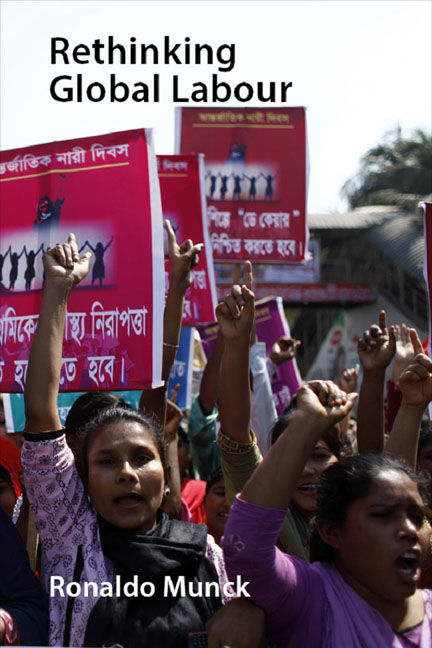Conclusion: Possible Futures
Published online by Cambridge University Press: 09 August 2023
Summary
Workers, as we have seen, are central to capitalism’s development and are always an antagonistic element at its heart. This is important for the workers of the world, of course, but also for the wider society, in so far as they – and their organizations – may play a role in the creation of a progressive, sustainable global development strategy.
I begin this conclusion with an analysis that seeks to take us beyond the impasse that I detect in most current research in labour and globalization. The field is dominated by debilitating binary oppositions, such as that between old and new social movements, or between a mobilizing strategy based on recognition versus one oriented towards redistribution. There is a need, I argue, for a more dialectical understanding of the dilemmas and choices faced by workers and others in the contemporary era. This analysis understands capitalism as always being subject to and shaped by workers’ struggles, while of course itself setting the context for these.
I then move on to develop a complexity framework that is, I would argue, necessary for understanding the role of labour both as a driver of capitalist development and as a possible agent for its undoing. Complexity allows us to move beyond binary oppositions and is also cognizant of contradictions and the dialectical nature of development. It is also, at least in the way in which I deploy it here, compatible with thinking about possible futures that are not simply utopian but based on real alternatives before us in many parts of the world, and that often prefigure a future that might be ours.
Finally, returning to the world of labour today, I consider whether another world might be possible, which is a slogan popularized by the World Social Forum that is in need of some concrete action if it is to be more than wishful thinking. I examine what might be termed reformist labour futures, such as the “Decent work” campaign of the ILO and others. I also assess the more radical social movement unionism, which has sought to take labour beyond the reformist economic and political unionism of the past.
- Type
- Chapter
- Information
- Rethinking Global LabourAfter Neoliberalism, pp. 215 - 240Publisher: Agenda PublishingPrint publication year: 2018



